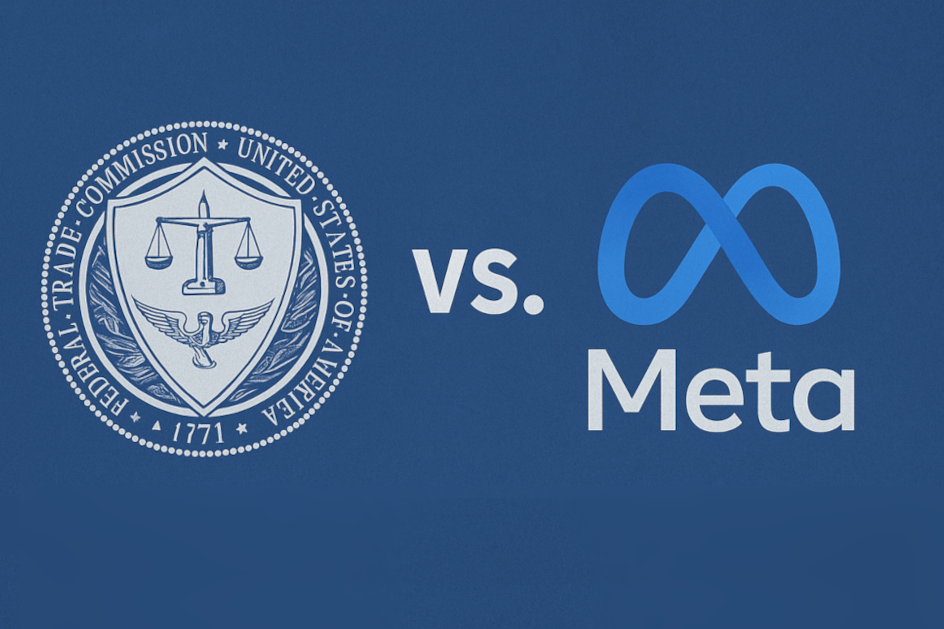I haven't followed the FTC Meta case very closely so far, but reading some posts about it, I generated too many reactions to contain without writing down and sharing. Mostly, I just think the entire case is unnecessary and irrelevant.
Many such cases rely on the market definition, which is crucial. Quickly, to be able to show that a firm is controlling a market, you have to define what market they're controlling. I'm familiar with hospitals, so geography was an important aspect, but for this case, the product market is what's important.
The FTC generally wants to define the market as narrowly as possible because the narrower the market, the easier it is to show concentration. Conversely, firms want to define it broadly. Unsurprisingly, there's some argument over the market definition. FTC defines the market as "Personal Social Networking Services" (Facebook, Instagram, Snapchat, and MeWe). Meta contends the market it competes in is much broader, though I'm unable to find a precise definition. At a minimum, they want to include TikTok and YouTube.
I do recommend this substack article by Brendan Benedict, who is knowledgeable on the topic and in the courtroom. But when I read through the activity and the arguments, I can't help but wonder at Meta's strategy. Here are some points I'd make if I were involved, though they'd surely need to be translated to legalese.
Firstly, I don't buy that Instagram and Facebook compete with each other in the conventional way. Consider the entire social media industry. To me, it seems stratified by purpose and also by medium. As far as user base, there's NextDoor for neighbors, LinkedIn for professionals, Facebook for socialization. Then, by medium, X focuses on microblogging, Facebook posts of friends, Instagram for images, and TikTok and YouTube compete a little on videos.
Do any of these platforms really compete with each other? If any of them go down, you may reallocate your time to some of the others, but what you'll be doing, and your audience, will change drastically. I don’t think they’re really competing for the same consumers the way Coke and Pepsi or GM and Ford do.
If Facebook hadn't bought Instagram, what do you really think the outcome would be? My suspicion is it would either be its own company and be basically the same as it is now in functionality and user base, or it would've been bought by someone else and be basically the same as it is now in functionality and user base.
Antitrust experts call this the but-for world. What would it look like but-for this acquisition. It's hard to imagine it would be much different.
User Base or Advertisers
Maybe this will become more clear as the case progresses, or maybe I'm just not well enough informed, but I'm not quite understanding the interactions between the market definition with regard to users, and the market definition with regard to advertisers.
The age of the internet and internet companies have made antitrust analysis more challenging because many of the companies give their products away to consumers for free. So, what has happened with Meta in the past is that they use advertising as the market. If a social media company is a monopoly, it can use its monopoly power to command higher prices from advertisers. But the market definitions I've seen haven't made reference to advertisers, and I don't think advertisers focus their dollars the way the FTC is defining the market. Even if users considered Facebook and Instagram closer substitutes, do advertisers? Surely if Meta raised its ad prices, those advertisers would shift to TikTok.
In summary, I have yet to understand how these two factors are related to each other, but maybe I'll learn that going forward.
Theoretical Tests of Market
I can think of three potential hypothetical market tests in this case. A hypothetical market test, essentially, is saying "Would a potential merged firm raise prices without losing so many customers it's not worth it?" But, as mentioned before, prices are zero for users of social media services. However, there's no reason you can't use quality instead of price. So the three questions are:
- Can Facebook+Instagram raise its price to users and it lose fewer customers than they would if they didn't merge?
- Can Facebook+Instagram lower its quality to users and lose fewer customers than they would if they didn't merge?
- Can Facebook+Instagram raise its price to advertisers and lose fewer advertisers than they would if they didn't merge?
Now, these aren't the formal questions, but they're the essence of what the questions are meant to determine. If the answers to any of these questions is yes, then the FTC wins the argument. To me, though, I'm not sure if the answers to any of them are yes. It's early, though, and I'm sure I'll learn more over the next couple days.

